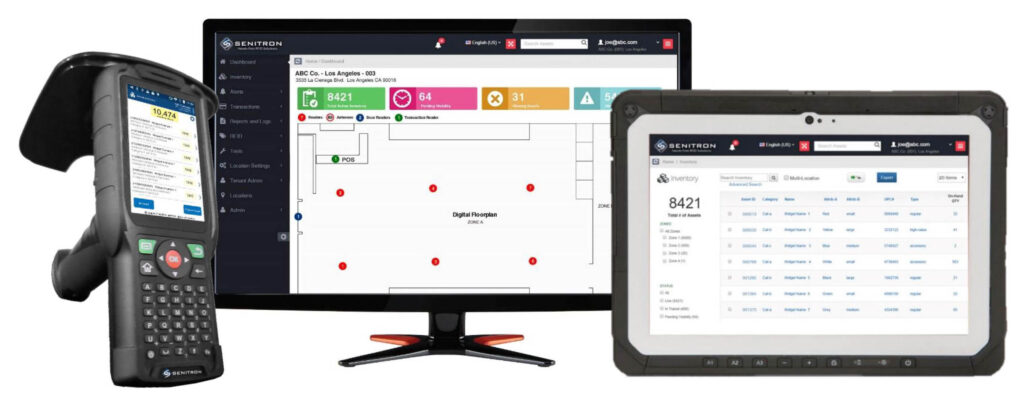Managing a warehouse efficiently is crucial for businesses aiming to reduce costs and optimize operations. Warehouse management has evolved with the introduction of Radio Frequency Identification (RFID) technology. This technology offers real-time tracking, improved accuracy, and enhanced operational control.
Implementing an RFID system in warehouse management allows businesses to streamline processes, ensuring that both time and resources are utilized effectively.
· Understanding RFID in Warehouse Management
RFID technology uses radio waves to capture data stored in RFID tags attached to items. These tags are scanned and recorded without the need for direct contact, making the tracking process faster and more accurate. In an RFID warehouse management system, inventory can be tracked automatically, reducing human error and improving stock visibility.
· Boosting Efficiency with RFID
Efficiency is at the core of RFID technology in warehouse management. One of its key benefits is faster inventory tracking. Traditional manual inventory checks are time-consuming and prone to mistakes, but RFID streamlines the process by allowing businesses to track multiple items simultaneously.
Inventory tracking RFID systems help companies keep accurate stock records, reducing the risk of overstocking or stockouts. This ensures the right products are available when needed, preventing delays and disruptions in the supply chain.
· Reducing Costs Through Automation
Implementing RFID in warehouse management not only improves efficiency but also reduces operational costs. Automating the inventory tracking process decreases labor costs, as fewer employees are needed for manual checks.
Furthermore, the reduction in errors results in fewer losses from misplaced or incorrect stock. RFID technology also optimizes space usage by accurately tracking item locations, making storage more efficient.
· Improving Accuracy and Data Visibility
One of RFID technology’s standout advantages is its ability to enhance data accuracy. With automated scanning and tracking, the margin for human error is minimized. Real-time data provided by RFID systems gives businesses a clear view of stock levels, making it easier to predict demand and manage orders efficiently.
· Challenges to Consider
Despite the benefits, implementing RFID technology comes with its challenges. The initial investment in RFID hardware, such as readers, tags, and software, can be significant. Businesses must also ensure that the system integrates smoothly with existing warehouse management systems. Additionally, environmental factors like metal or liquid can interfere with RFID signals, requiring careful planning to avoid disruptions.
· Tips for Successful Implementation
To successfully implement an RFID warehouse management system, businesses should begin by evaluating their current warehouse operations and identifying areas where RFID can offer the most improvement.
Starting with a small pilot program allows companies to test the system and make adjustments before scaling up. Employee training is also essential, as staff must understand how to use the system effectively.
Conclusion
RFID technology is transforming warehouse management by enhancing efficiency, accuracy, and cost savings. By automating inventory tracking and improving data visibility, businesses can streamline operations and make more informed decisions. Although the initial investment may be high, the long-term benefits of implementing an RFID warehouse management system far outweigh the costs.

